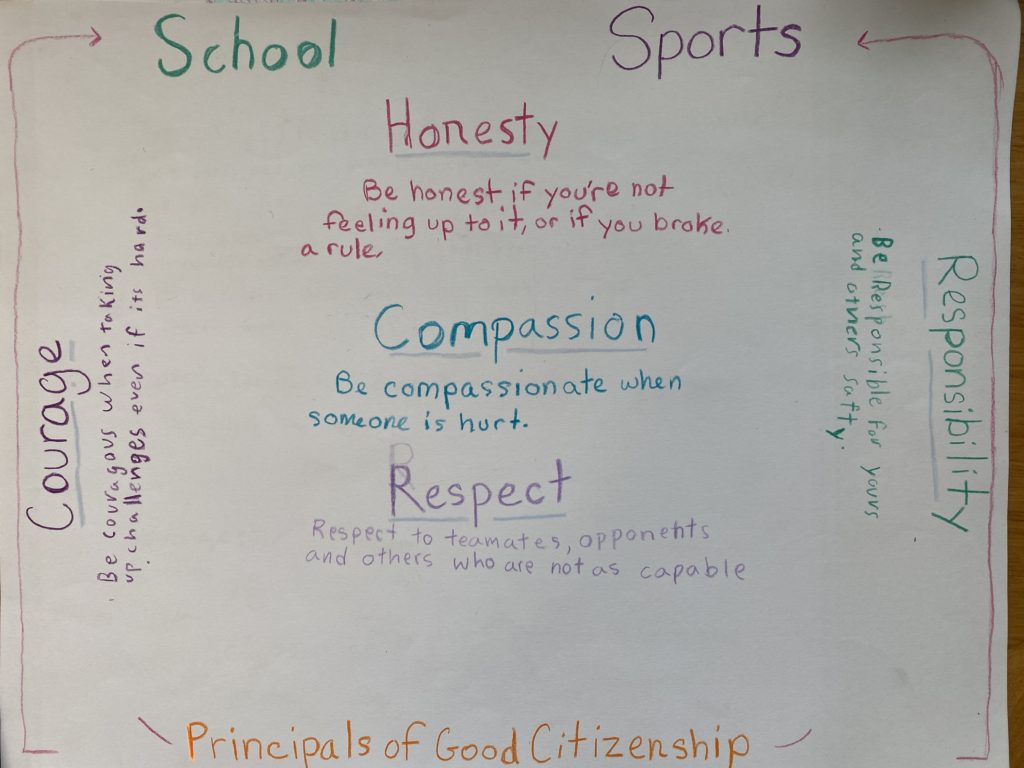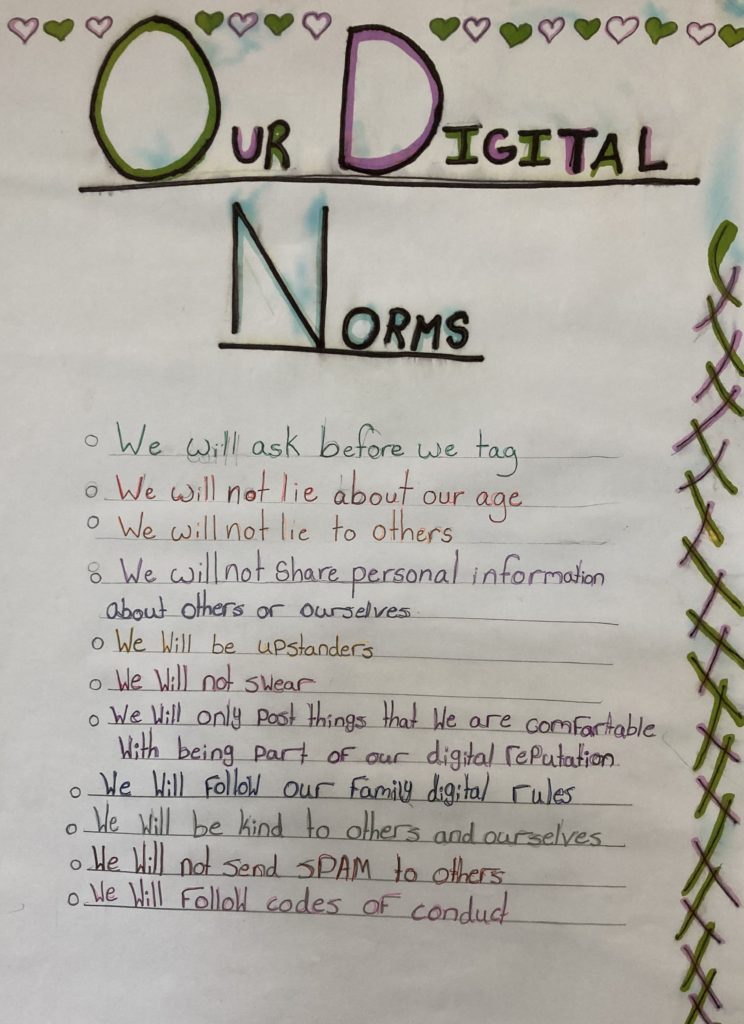
Because experts agree that the most important media skills are social and behavioral skills, in sixth grade the curriculum will be delivered through games, role-play, discussion, and debate. Cyber Civics classes will happen once a week. I will send regular updates with suggested activities that you can do together at home that will support what students are learning in the classroom. In the meantime, below is a brief overview of the digital citizenship topics your children will explore this year.
— Rebekah Hopkinson, Cyber Civics Teacher
CYBER CIVICS LEVEL 1: Digital Citizenship
The safe and responsible use of digital tools.
Hiding Behind a Screen  Sometimes people say and do things from behind a screen that they would never say or do in real life. While this phenomenon may encourage some to engage in cyberbullying, through hands-on activity students learn that others hide behind their screens for entirely different reasons.
Sometimes people say and do things from behind a screen that they would never say or do in real life. While this phenomenon may encourage some to engage in cyberbullying, through hands-on activity students learn that others hide behind their screens for entirely different reasons.
Real People, Real Feelings
A fun project drives home the fact that there is a real person, with real feelings, behind every screen.
What is Cyberbullying? Digital Drama?
Students discover what cyberbullying is as they explore the differences and similarities between cyberbullying, digital drama, and in-person bullying. They also learn how to empathize with and support the targets of all types of bullying.
Be Upstanding
This lesson empowers students with real-world strategies they can call upon to stand up to cyberbullying, or bullying of any kind, whether they are a target or observer.
Take Stock, Block, Talk
Students role-play and practice an effective three-step response to online bullying.
Identity & Privacy
“Who am I?” is an important question during the preteen and teenage years, and today many young people turn to the digital world to find the answer. While the Internet can be a good place to explore different ideas or personal characteristics, there can also be danger in sharing too much personal information online, which is explored in the lessons in this unit.
Who Am I Online?
This game helps students understand that they have unique characteristics that make up their identities. They also discover that people express their identities through offline and online roles that can sometimes differ significantly.
You Are the Words You Use
Hate speech is a verbal attack on a person or a group of people, based on an identity characteristic like race, gender, sexual orientation, religion, etc. Through this activity, students learn what to do should they ever witness or become the target of hate speech.
My Self, My Selfie
Students consider what sort of impression they want to make through the public profiles they post. In addition, this lesson explores the growing popularity of “selfies” by reviewing its surprising history.
You, In Six Words
Through a fun activity, students practice the art of writing short online biographies that accurately and appropriately express who they, and their classmates, are online.
A-Okay or No Way
By considering how the information they post not only impacts their privacy, but also shapes their online identities, students discover how important it is to take an active role in deciding how much private information to share online.
Digital Citizenship Review
Students complete this level by engaging in a fun final project that lets them review and reinterpret what they’ve learned in a way that makes it significant and relevant to them. These “Digital Citizenship” lessons are foundational to the lessons in “Information Literacy” and “Media Literacy For Positive Participation” that follow in the next two levels of Cyber Civics.

